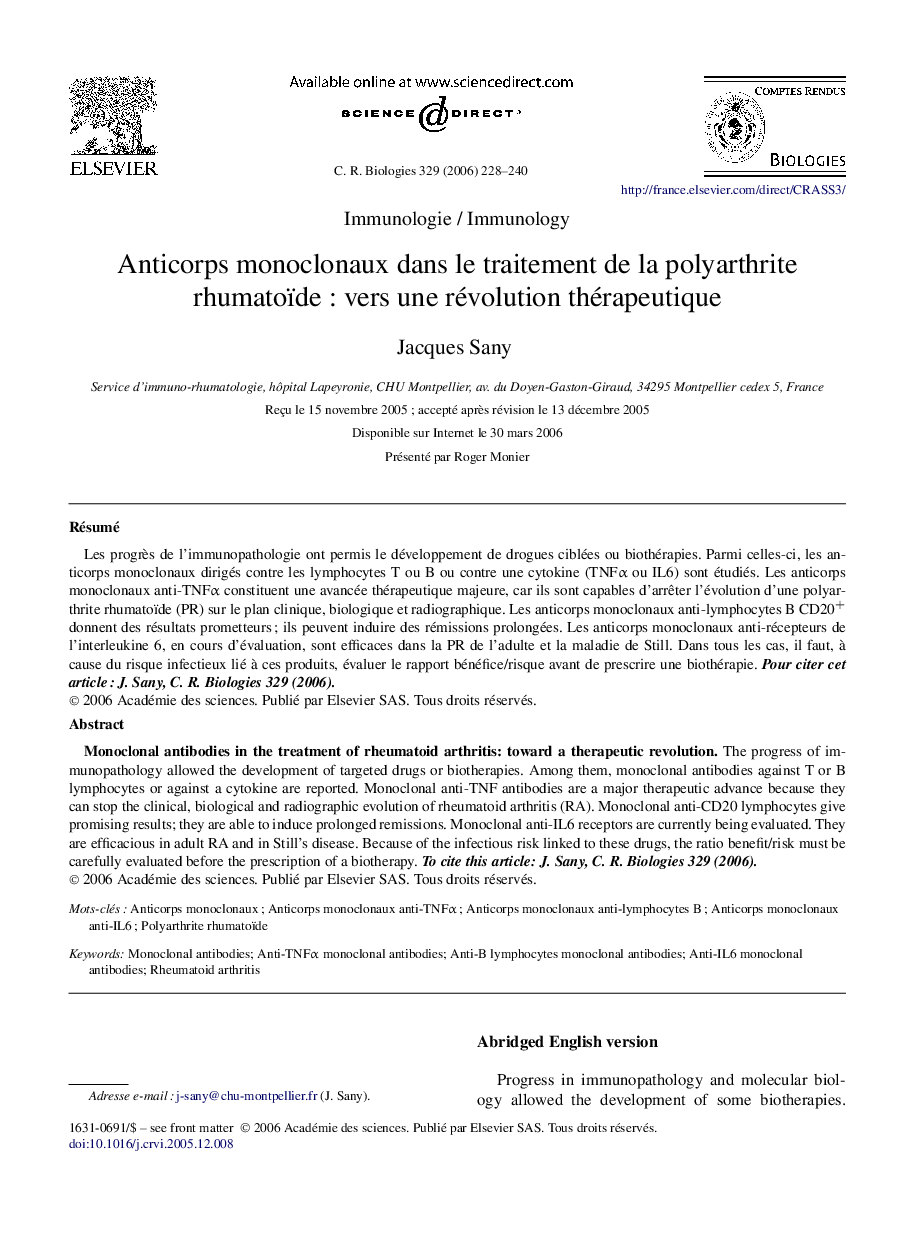| Article ID | Journal | Published Year | Pages | File Type |
|---|---|---|---|---|
| 2784782 | Comptes Rendus Biologies | 2006 | 13 Pages |
RésuméLes progrès de l'immunopathologie ont permis le développement de drogues ciblées ou biothérapies. Parmi celles-ci, les anticorps monoclonaux dirigés contre les lymphocytes T ou B ou contre une cytokine (TNFα ou IL6) sont étudiés. Les anticorps monoclonaux anti-TNFα constituent une avancée thérapeutique majeure, car ils sont capables d'arrêter l'évolution d'une polyarthrite rhumatoïde (PR) sur le plan clinique, biologique et radiographique. Les anticorps monoclonaux anti-lymphocytes B CD20+ donnent des résultats prometteurs ; ils peuvent induire des rémissions prolongées. Les anticorps monoclonaux anti-récepteurs de l'interleukine 6, en cours d'évaluation, sont efficaces dans la PR de l'adulte et la maladie de Still. Dans tous les cas, il faut, à cause du risque infectieux lié à ces produits, évaluer le rapport bénéfice/risque avant de prescrire une biothérapie. Pour citer cet article : J. Sany, C. R. Biologies 329 (2006).
The progress of immunopathology allowed the development of targeted drugs or biotherapies. Among them, monoclonal antibodies against T or B lymphocytes or against a cytokine are reported. Monoclonal anti-TNF antibodies are a major therapeutic advance because they can stop the clinical, biological and radiographic evolution of rheumatoid arthritis (RA). Monoclonal anti-CD20 lymphocytes give promising results; they are able to induce prolonged remissions. Monoclonal anti-IL6 receptors are currently being evaluated. They are efficacious in adult RA and in Still's disease. Because of the infectious risk linked to these drugs, the ratio benefit/risk must be carefully evaluated before the prescription of a biotherapy. To cite this article: J. Sany, C. R. Biologies 329 (2006).
